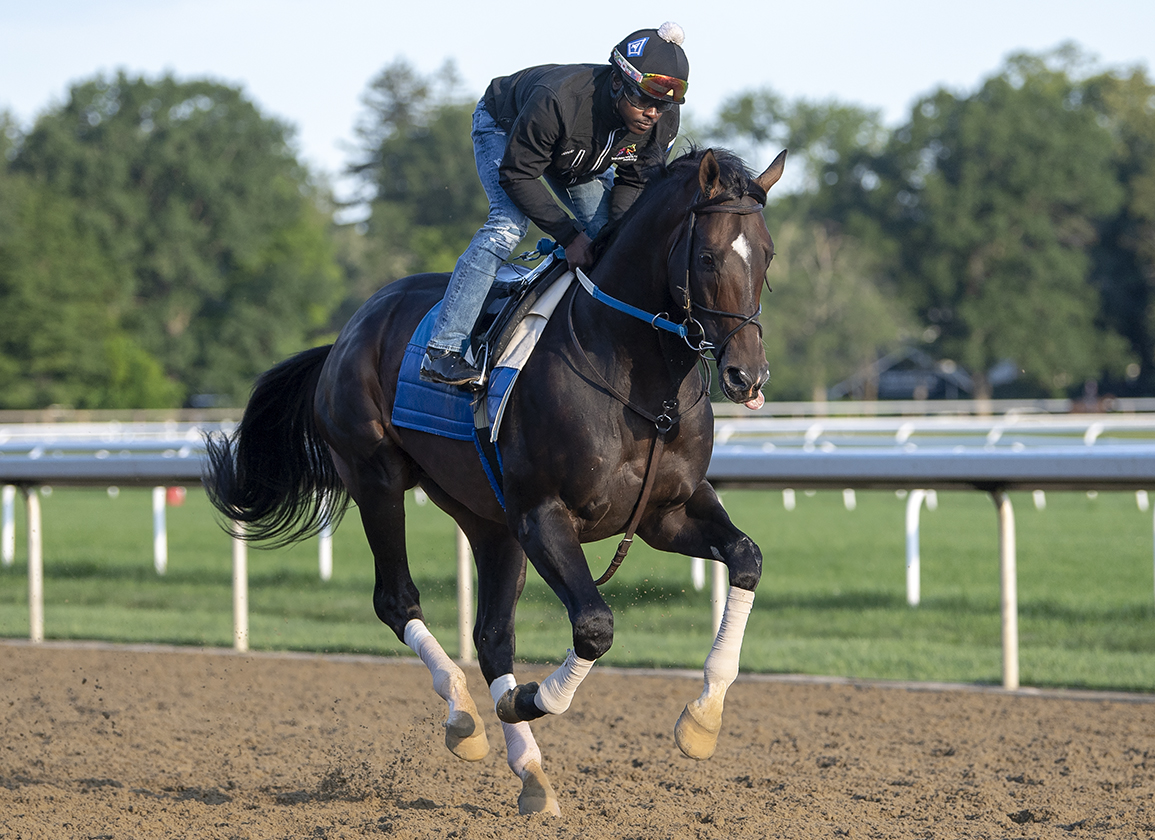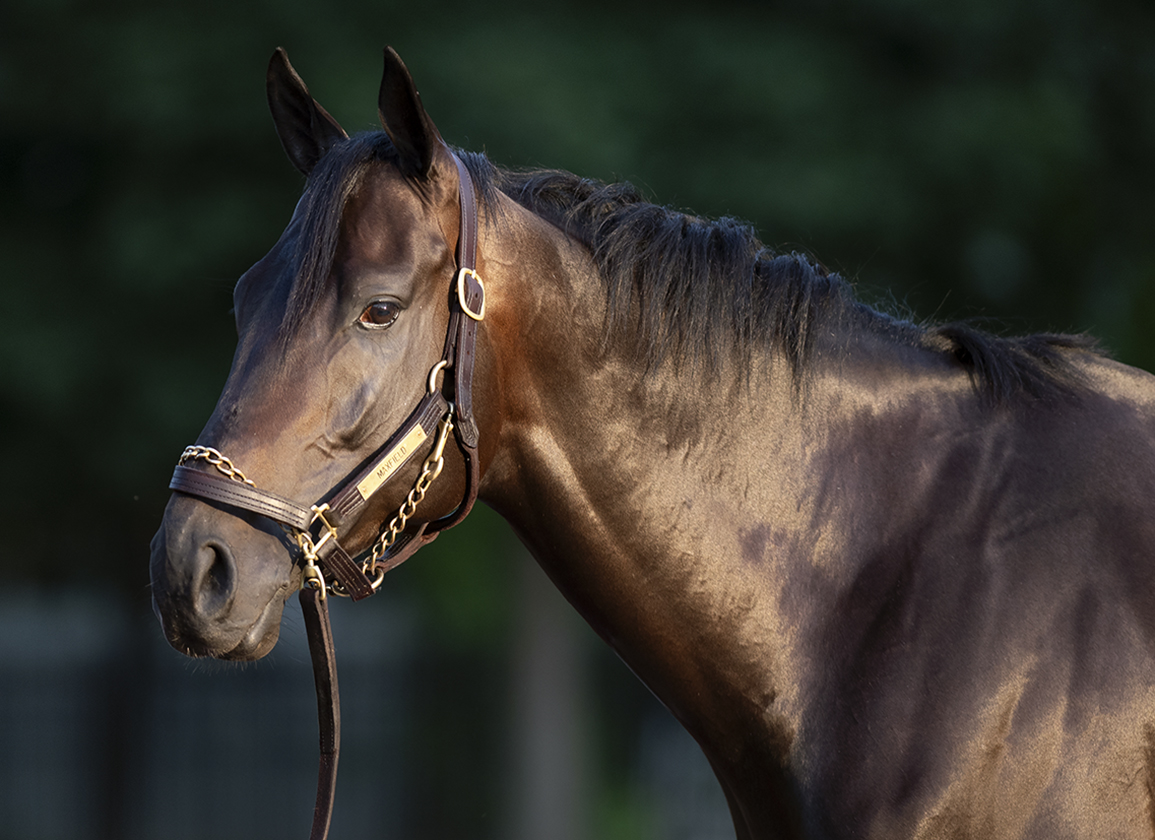Could happen, you know. Within the random weavings of the Thoroughbred, after all, it's always tempting to discern some pattern suggestive of a coherent, governing narrative. And if Silver State (Hard Spun) were to win the GI Whitney S., and in the process happened to become the 9,446th winner saddled by his trainer, it might well feel as though 35 years of skill and endeavor, processed daily through random fluctuations of good or bad luck, have all led logically and inexorably to this pinnacle.
The trouble is that whoever came up with that plot should probably never get a job in Hollywood. For if Steve Asmussen is indeed to pass Dale Baird's all-time record Saturday, then any suitably imaginative scriptwriter would surely have contrived that he did so, not in this storied, $1-million race, corroborating his enshrinement five years ago in the adjacent Hall of Fame, but in the somewhat less resonant environs of Mountaineer Casino, Racetrack and Resort.
Sure, it would be apt for such a momentous landmark to evoke one of Asmussen's masterpieces, Gun Runner (Candy Ride {Arg}), who in 2017 became his only Whitney winner (famously carrying a fifth shoe, the “rabbit's foot”, tangled in his tail). Silver State also represents his parents' old clients Winchell Thoroughbreds–in this instance, along with Willis Horton Racing–and the patient development of his potential is similarly exemplary of his trainer's dexterity.
Even so, there would arguably have been a still more pleasing symmetry to Asmussen instead breaking the tape in the GIII West Virginia Derby, a race that has so far contributed five wins (another record) to his overall tally. As it is, the 14 runners eligible to make history Saturday are confined to four other tracks–and Asmussen leaves undisturbed, this time, soil that was for decades the fiefdom of the very man whose place in the annals of the Turf he is about to supplant.
The Baird era here, spanning 20 consecutive training titles, straddled the transition from Waterford Park into pioneer racino; and was only ended by his shocking loss, at 72, in an automobile accident just before Christmas 2007. Just think: his nearest pursuer at the time, Jack Van Berg, was over 3,000 career wins behind.
But Baird never won the local Derby; never won a graded stakes of any description, in fact. He plied his trade in cheap claimers, sometimes rotating as many as 200 horses in a year, the majority in his own silks. Asmussen, in contrast, has given us a Horse of the Year four times in the last 13 years, becoming a paradigm of the “super trainer” elite who have transformed the horizons of their profession. In the process, having once amassed 650 winners in a single year, he has shown how these trainers must count delegation among their key skills.
Sheer volume, as such, might appear to be the only challenge shared by the hometown trainer Baird and the federal power Asmussen. Nor, seemingly, could you obviously conflate their personalities. Baird was evidently a low-key type, reserved and unassuming, given to understated humor; Asmussen, as anyone can see, is a truly “spectacular” specimen. With his flamboyant looks and expressive bearing, he commands attention whether he's grinning or glowering.
But remember that both men honed their intuition in a family of horsemen. Baird's father, brother, son and nephew all embedded their surname in a training dynasty. And I love how the latter first clocked this vivid counterfoil to his uncle, at Presque Isle Downs one day: he saw Asmussen going down the shedrow to discuss a particular horse with one of his team and, as they spoke, instinctively grabbing a brush to groom the animal's opposite side.
Nobody has to tell Asmussen that Silver State represents only the apex of a pyramid with a very wide base. In his first year he won a single race, at Ruidoso Downs, and $2,324. Through his first decade, he started two horses in graded stakes. As he recently told colleague Bill Finley, everything “goes back to my mom and dad showing me that every horse in front of you is important… [that] every single horse was just as important as the next one.”
But this outlook, in turn, complements a voraciously competitive nature. In another of the many interviews to which he has graciously submitted in anticipation of his feat, Asmussen made candid and instructive reference to the intensity of his own character. “Either everything matters,” he said, “or nothing matters.” Not an attitude that will endear everyone, perhaps–but one you have to love, if you're an owner or indeed a racehorse.
Asmussen was joined in the Hall of Fame by a handful of privileged rivals Friday, but its doors have never admitted Baird. He instead had to settle for a Special Eclipse Award, after becoming the first to 9,000 winners. Nonetheless you suspect that he would bestow a posthumous blessing on the man who is about to efface his record; and if it can't happen in the West Virginia Derby, then Baird would certainly settle for destiny instead summoning into the record books the gelding Asmussen fields under a $5,000 claiming tag at Louisiana Downs.
Another fitting memorial could yet be carved in the West Virginia Derby, by one of the latest Hall of Fame inductees–and surely among the most automatic ever. Because Todd Pletcher's runner Bourbonic, as a son of Bernardini, represents what has suddenly become a still more precious genetic resource.
The silver lining to the loss of this most beautiful of stallions is that his precocious achievements as a broodmare sire already guarantee that his legacy will continue to evolve for many years yet. The Whitney, indeed, could well yield another garland for his daughter Velvety, the dam of Maxfield (Street Sense).
She's a half-sister to Sky Mesa (Pulpit), their Storm Cat dam in turn a sister to Bernstein, and this is the branch of the La Troienne dynasty that goes through Buckpasser's dam Busanda. It has corresponding seeding all the way through–next dams are by Affirmed, Round Table, Nasrullah and War Admiral–and Maxfield's Whitney performance will simply help to determine how affordable he may be as a truly aristocratic stud prospect.
Bernardini himself had suffered the indignity of a fee slide from $100,000 as recently as 2017 to $35,000 for his final spring. Yet his stature as broodmare sire had meanwhile redressed a couple of fallow campaigns for his own foals. To some of us, compounded distaff influences will always provide a sturdier foothold in a pedigree than the putative alchemies between sire lines. His Grade I-winning dam Cara Rafaela, for instance, was one of the markers laid down in a debut crop of just 32 named foals by her sire Quiet American, alongside two other significant females in champion Hidden Lake and the remarkable broodmare Quiet Dance, dam of one Horse of the Year and second dam of another.
Her grandson, of course, was none other than Gun Runner. And it so happens that Asmussen starts this momentous day by saddling a member of that horse's first crop, the Winchell homebred Under the Gun, in the opener at Saratoga. Later he gives a debut to Vodka Mardini, a son of Bernardini, who also features as sire of the barn's final runner on the card, Miner's Queen. So, actually, you know what? Maybe there is a decent scriptwriter up there after all.
The post This Side Up: Asmussen Poised to Convert Silver to Gold appeared first on TDN | Thoroughbred Daily News | Horse Racing News, Results and Video | Thoroughbred Breeding and Auctions.


